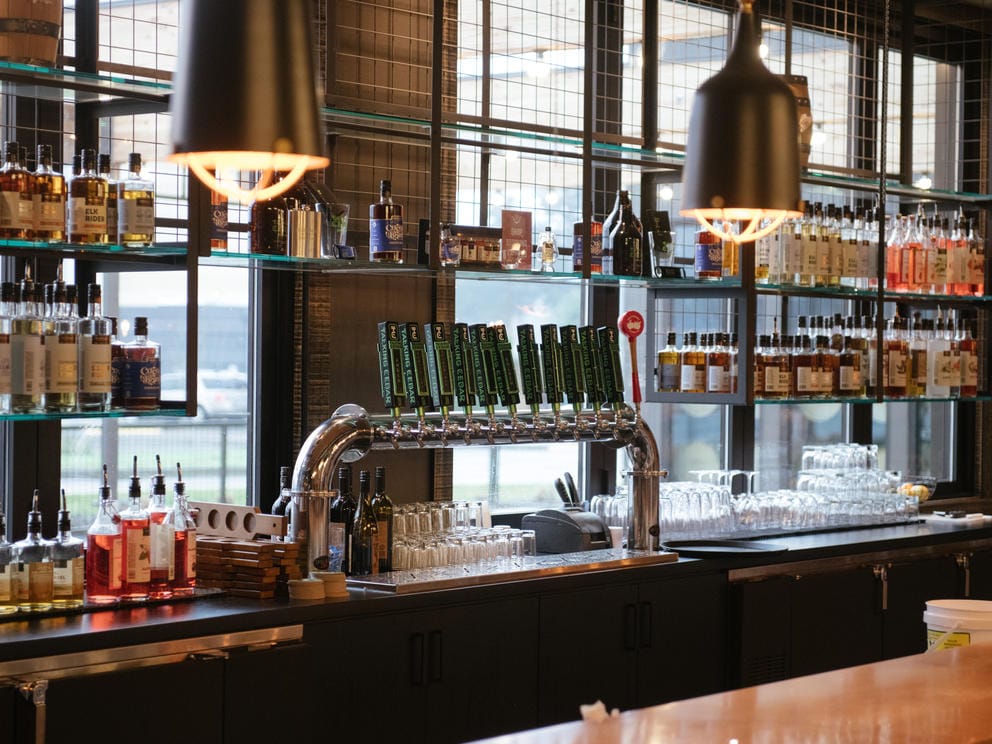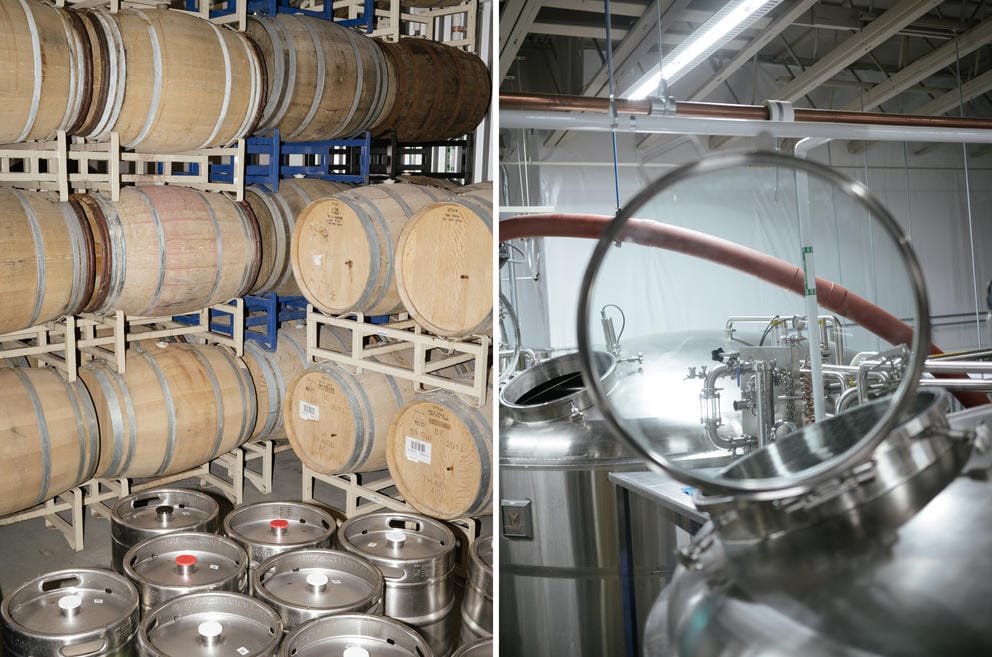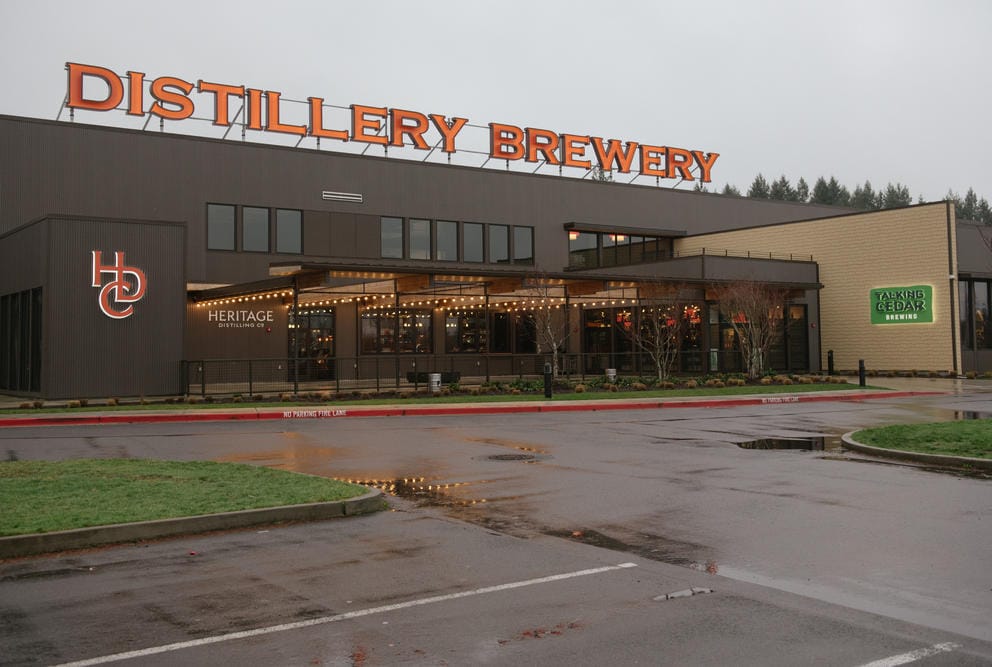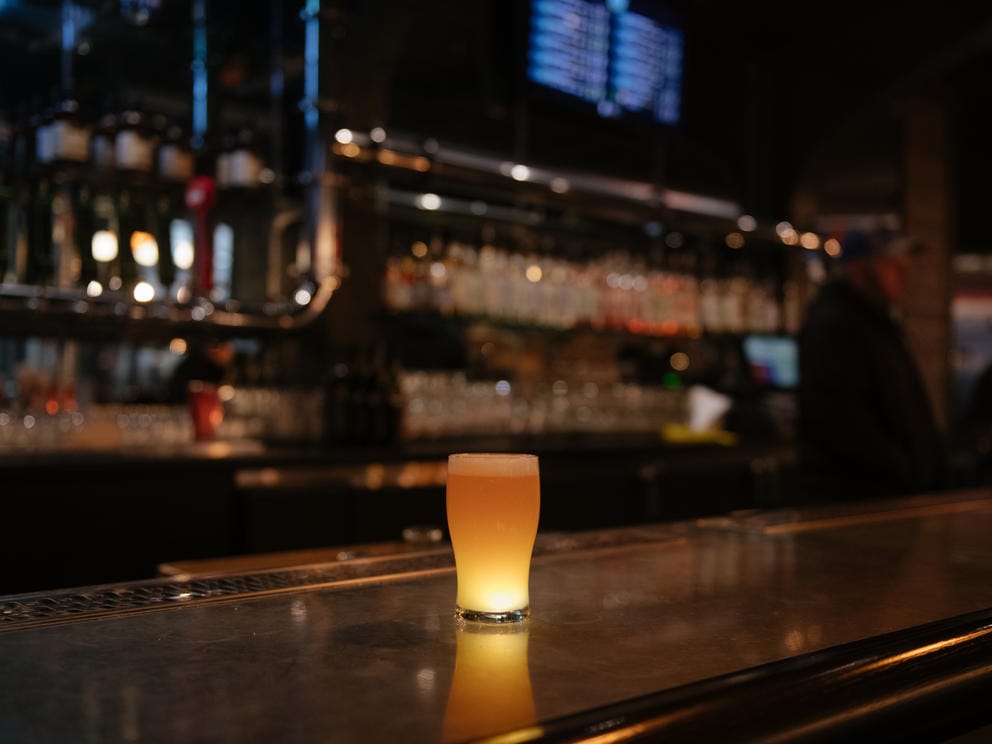The Indian Intercourse Act of 1834 — intended to regulate trade and “preserve the peace on the frontiers” — made the manufacturing of liquor in “Indian Country” illegal. Nearly 200 years later, the first Native-owned distillery on U.S. reservation land opened in Washington state.
The Confederated Tribes of the Chehalis Reservation will begin distilling their own spirits at their Talking Cedar distillery next week, after a long fight with the federal government to move beyond the control of that 1834 law and the racism that surrounded it.
This wasn’t the first time the Chehalis tribes have had to overcome opposition to their business ventures. Disputes over taxation and gambling have interrupted their progress in the past so when the tribal attorney's office got a letter from the Department of Interior in 2017 saying that an Indigenous-owned distillery business on reservation land was illegal, David Burnett was surprised but remained determined.
“I like to just keep going and, if something comes up, it's something to either go through or around or over,” said Burnett, the previous tribal chairman and current CEO of Chehalis Tribal Enterprises. “It was just another barrier and I didn't really contemplate what that might necessarily mean for Indian Country.”
After receiving the letter from the Department of Interior, the tribes found out that the military would forcefully destroy any distillery on a reservation under the 1834 law. So the Chehalis tribes put the project on hold and spent almost a year working on overturning the federal regulation.

One of several well equipped bars at Talking Cedar, a brewery and distillery owned by the Chehalis Tribe, is the first legal alcohol production facility on tribal land following a repeal of a 185-year old law meant to oppress Native Americans. (Grant Hindsley for Crosscut)
Dismantling dangerous stereotypes
During the same time, some Chehalis tribal elders and some youth brought up concerns about opening such a large alcohol-related business. The business plan called for a 35,000-square-foot complex projected to create at least 130 jobs.
Stereotypes of the “drunken Indian” have persisted since first contact and stemmed from the idea that Indigenous people were inferior and therefore more susceptible to alcohol abuse. This racist stereotyping was what emboldened federal lawmakers to pass the 1834 law, while offering soldiers stationed on reservations daily whiskey rations.
A 2016 study found that Indigenous people’s binge and heavy drinking rates match those of whites, and that Native Americans are actually more likely to abstain from alcohol use. Although drinking rates are the same, Indigenous people die at much higher rates than any other group from alcohol-related issues. According to the study's scholars, less access to medical care, safe housing and quality food amplifies health problems connected to alcohol, and the stereotyping could contribute to the failure of health care providers to treat the real problem.
The Chehalis General Council talked through concerns related to the lingering stereotype and the potential harm to the community and agreed that Talking Cedar would benefit the tribes and decided to move forward.
The Chehalis tribes don’t pay federal income taxes on any of their businesses but, according to Burnett, it’s like they pay a 100% tax to the tribal government. All earnings from Chehalis businesses, including the new distillery, go toward tribal schools and academic development programs for Native youth, quality health care and wellness programs, like the Caring for Each Other House, which focuses on healing from violent trauma and on other services the tribal government provides.

Left: Barrels and kegs of Talking Cedar beer in their new 35,000 square foot facility in Grand Mound, WA. Right: Fermentation tanks sit open. (Grant Hindsley for Crosscut)
A Tribal Beverage Network
To repeal the 1834 law, the Chehalis tribes reached out to U.S. Rep. Jaime Herrera Beutler, R-Battle Ground, who worked with them to craft HR 5317 in 2018. With the support of U.S. Sens. Maria Cantwell, D-Washington, a current member and former chairwoman of the Senate Indian Affairs Committee, and Patty Murray, D-Wasshington, the old law was successfully repealed and the prohibition on certain alcohol manufacturing on Indian lands was removed in 2018. Two years later, the Chehalis tribes opened the $25 million Talking Cedar craft brewery, tap room, gastropub-style restaurant and event space.
“Changing a federal law is no small feat, but to get one changed in that short of a time frame is a rather heroic lift by our people,” Burnett said.
Once the law was overturned, the door opened to other tribes interested in starting their own distillery businesses. To help other tribes diversify their economic ventures, the Tribal Beverage Network was created. The network is a concept of Heritage Distilling Co., which worked with the Chehalis tribes to overturn the 1834 law. Heritage Distilling is also partnering with the Chehalis tribes to use their distillery, now one of the largest in the Pacific Northwest, to produce Heritage brand spirits.
Talking Cedar has the capacity to produce 10,000 barrels of whiskey per year and nearly 1.5 million gallons of other spirits, according to the Heritage Distilling site.
“They can come to our facility and see what we're doing,” Burnett said. “It's just saying, ‘Hey, if you have an interest, how can we help?’ ”
Since working with the Chehalis tribes to open Talking Cedar, other tribes from around the country have reached out to Heritage Distilling to express an interest in doing the same. Heritage Distilling is currently reviewing agreements with tribes in Arizona, California, Oklahoma, Michigan and Connecticut, and has also been contacted by tribes in Louisiana and Oregon. “I think we're viewed as a trusted partner on how to help tribes get a distillery started and to have success early on,” said Justin Stiefel, CEO of Heritage Distilling, which is based in Gig Harbor.
As with the Chehalis tribes, Heritage Distilling will be licensing its brand to each tribe so that each can produce Heritage Distilling products with their recipes, while also working to create their own unique brand and products. “For us this is also about partnering with the tribes to help them to exercise sovereignty,” Stiefel said.
According to Stiefel, all future Heritage Distilling locations will be a partnership with a tribe. “It's how we want to move our company forward — in partnership with as many tribes as are looking to partner across the country,” Stiefel said.
Progress through a pandemic
Because of the challenges of starting a new business during the pandemic — including supply chain issues — Talking Cedar has been preparing to distill spirits for the past six years but will begin producing its first product next week under the Heritage brand, with capacity to do other labels once production ramps up. Among the challenges have been importing distilling equipment from Italy, one of the early epicenters of the pandemic, and skyrocketing steel prices resuslting from a trade war with China.
The Chehalis tribes coped by replacing a lot of steel elements with wood. “We essentially had to design this project twice,” Burnett said.
They have started hiring more workers and are ready to go. “We are excited for the spirits production to begin and to see that space come to life,” Burnett said.
Opening a brew pub during pandemic restrictions, when bars and restaurants were closed, made introducing a new craft beer into a crowded market a challenge. But now that things have begun to open up a bit, Talking Cedar’s Pacific Northwest IPA and Raspberry Blond IPA can be found packaged and in kegs in bars and retail outlets all over Washington and northern Idaho. A Kolsch, a Pilsner, and an Eagle 1 IPA are also being distributed right now, but Talking Cedar plans to change its product lineup to meet demand for innovation in the market.

Talking Cedar’s 35,000 square foot distillery-brewery houses a restaurant, two bars, a 60 barrel production capacity brewery and a 3.2 million bottle-a-year distillery, in Grand Mound, WA on Dec. 20, 2021. (Grant Hindsley for Crosscut)
A flavorful future
Talking Cedar is also working with Stillwater Artisanal, which distributes beer in 35 states and five countries. “It's a pretty big deal for us,” said Ryan Myhre, head brewer at Talking Cedar. “It's gonna allow us to use a lot of this capacity. We've got way more here than Talking Cedar could probably use in 10 years, so it's really imperative to bring a partner who's got a really big distribution footprint and Stillwater is that person.”
According to Myhre, through the Talking Cedar partnership with Stillwater alone, the operation should be producing 6,000 barrels of beer and, by 2024, up to 15,000 barrels a year. “It's a daunting task,” said Myhre.
In the future, Talking Cedar may begin growing its own hops.
“When we talk to some of our elder tribal members, they can remember as children that in our valley, there used to be hop production,” Burnett said. The elders remember their parents going out into the hop fields and picking hops for extra money. “So we know that this region can grow hops, and we would like to try to do that and truly create some unique flavors that are distinctly from our reservation,” he said.

Talking Cedar’s Pviek IPA is photographed on one of many built in bar lights that showcase the color and clarity of beers, seen on Dec. 20, 2021. (Grant Hindsley for Crosscut)



